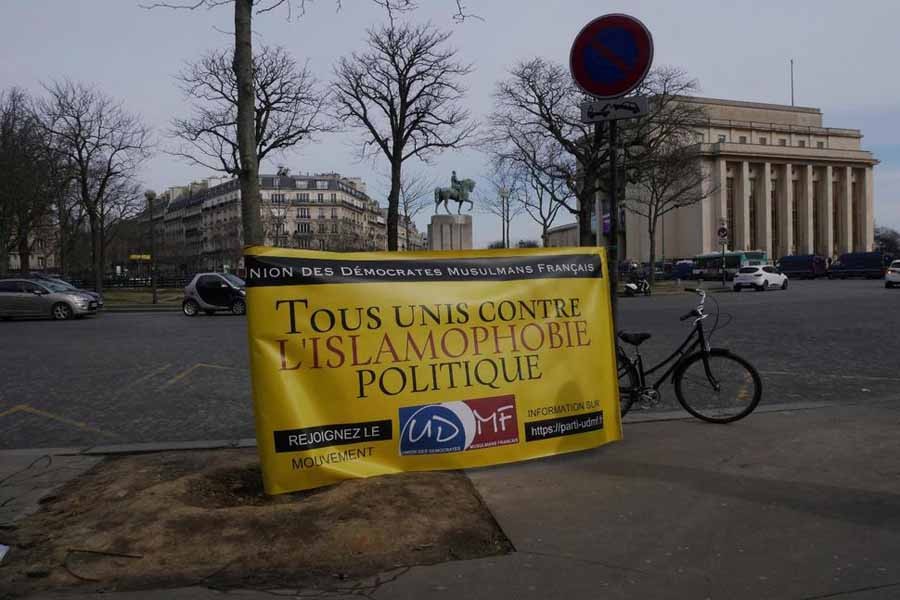A bill that would strengthen oversite of mosques, schools and sports clubs to rid France of radical Islamists and ensure respect for French values - and is one of President Emmanuel Macron's landmark projects - goes to a critical first vote by lawmakers on Tuesday.
The vast bill that covers most aspects of French life has been hotly contested by some Muslims, lawmakers and others who fear the state is intruding on essential freedoms and pointing a finger at Islam, the nation's No. 2 religion. But it is expected to pass in parliament's lower house where Macron's centrist party has a majority.
The legislation gained new urgency after a teacher was beheaded in October followed by a deadly attack on a basilica in Nice. One article addresses the gruesome slaying of Samuel Paty outside his school west of Paris, requiring five years of prison and a stiff fine for anyone threatening or intimidating a public servant carrying out a job.
The bill is part of other French efforts to fight extremism, mainly security-based.
Detractors say the measures are already covered in current laws and voice suspicions the bill has a hidden agenda by a government looking to entice right-wing voters ahead of presidential elections next year. Just days before Tuesday's vote, Interior Minister Gerald Darmanin, the bill's main sponsor, debated on national television with far-right leader Marine Le Pen, notably saying she was becoming "soft" on radical Islam and needed to take vitamins. Le Pen, who has declared her candidacy for the 2022 election, lost in the 2017 runoff against Macron.
The bill is backed by those who see the need to contain what the government says is an encroaching fundamentalism subverting French values, notably the nation's foundational value of secularism and gender equality.
The planned law "supporting respect for the principles of the Republic" is dubbed the "separatism" bill, a term used by Macron to refer to radicals who would create a "counter society" in France.
Top representatives of all religions were consulted as the text was being written. The government's leading Muslim conduit, the French Council for the Muslim Faith, gave its backing.
Ghaleb Bencheikh, head of the Foundation for Islam of France, a secular body seeking a progressive Islam, said in a recent interview that the planned law was "unjust but necessary" to fight radicalisation.
Among other things, the 51-article bill would ban virginity certificates and crack down on polygamy and forced marriage, practices not formally attached to a religion, things critics say are covered in existing laws.
Among key measures is ensuring that children attend regular school starting at age three, a way to target home schools where ideology is taught. Other measures include ensuring neutrality within public transport, including by private companies working for the state and that all public employees be trained in secularism.
The bill introduces mechanisms to guarantee that mosques and associations that run them are not under the sway of foreign interests or homegrown Salafists with a rigorous interpretation of Islam.
Associations are to sign a charter of respect for French values and pay back state funds if they cross the line.
To accommodate changes, the bill adjusts France's 1905 law guaranteeing separation of church and state.


